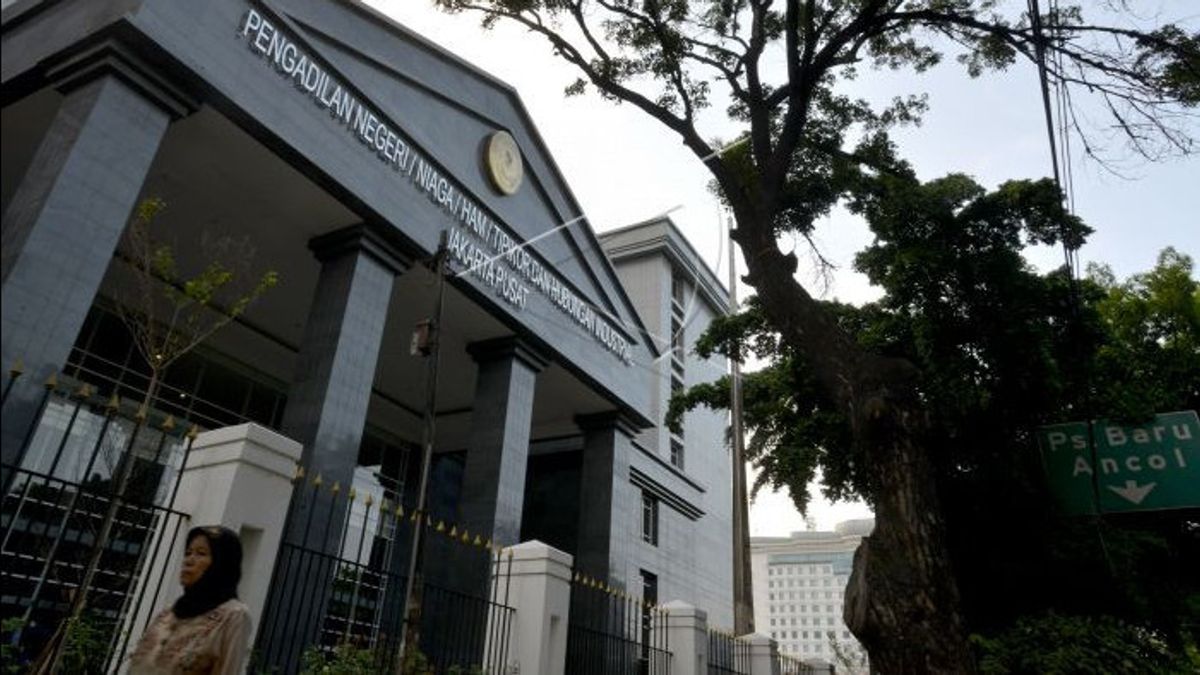JAKARTA - The Commission for Disappeared Persons and Victims of Violence (Kontras) condemned and criticized the Public Prosecutor (JPU) from the Attorney General's Office who insisted on demanding the death penalty for the defendant in the Asabri Heru Hidayat case. According to Kontras, the death penalty will not have a deterrent effect and even weaken the law.
According to Kontras, prosecutors should support the government's move to enforce a moratorium on the death penalty. In fact, said Kontras, the punishment in the Asabri case was a mere trifle.
"However, the question is what is the basis for the prosecutor to file a death charge against the defendant, given that there are quite a several corruption cases, whether the prosecutor's basis is to provide a deterrent effect", said Kontras Deputy Coordinator, Arif Nur Fikri, in a written statement, Thursday, December 23.
According to Arif, prosecutors should learn from other cases, such as drugs and premeditated murder. According to him, the death penalty in these two cases did not provide a deterrent effect at all.
"If it basically provides a deterrent effect, the prosecutor should be able to reflect on other cases such as narcotics and premeditated murder, where it is clear that the demand for the death penalty does not provide a deterrent effect at all", he said.
In addition, said Arif, the prosecutor should have supported the steps taken by the Joko Widodo government, which is indirectly implementing a moratorium on the death penalty. According to him, although positive law in Indonesia still allows the death penalty, including for corruption cases, the death penalty should not be applied because it has not been proven to have a deterrent effect.
"The government is currently indirectly carrying out a moratorium related to executions. These efforts should be supported by law enforcement officials by not adding to the row of death sentences for convicts, whether in corruption cases or other cases that regulate the death penalty", he insisted.
"I think the solution would be wiser if law enforcement officers looked for other punishment solutions other than the death penalty if the goal was to provide a deterrent effect rather than the death penalty", he added.
SEE ALSO:
Meanwhile, the Contras Legal Division, Auliya Rayyan, assessed that the death penalty basically only weakens the legal process. The reason is that the death penalty cannot teach criminals a lesson, including not providing a deterrent effect.
"The death penalty will not deter corruptors as long as the justice system still has the same people, who continue to cut the sentences for corruptors, still exist. There have been many corruption cases whose sentences were cut for trivial reasons, being kind, very sorry, and so on. This does not rule out the possibility that in this case (the Asabri case) the death penalty is just mere pleasantries and could change", explained Auliya.
Apart from that, said Auliya, another thing that makes the death penalty does not have a deterrent effect on corruptors is the leniency that allows public officials to commit corruption. As long as corruption can still be carried out easily and is inversely proportional to the spirit of punishing minor corruptors, she said, corruption will continue to last.
"Therefore, what must be changed is not only the punishment system for corruptors but also other policies that can narrow the movement of public officials to commit corruption", concluded Auliya.
The English, Chinese, Japanese, Arabic, and French versions are automatically generated by the AI. So there may still be inaccuracies in translating, please always see Indonesian as our main language. (system supported by DigitalSiber.id)













